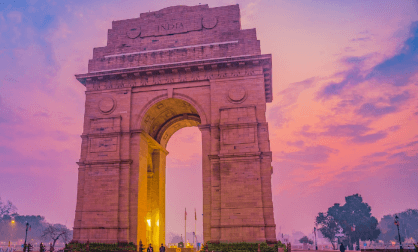Delhi experienced an unprecedented climatic event on Wednesday, with the Mungeshpur weather station recording a temperature of 52.9 degrees Celsius, the highest ever in India’s history, according to the India Meteorological Department (IMD).
This new record surpasses the previous national high of 51.0 degrees Celsius, noted at Rajasthan’s Phalodi weather station. Additionally, Delhi’s Safdarjung observatory, the city’s primary weather station, registered a peak temperature of 46.8 degrees Celsius, as reported by news agency PTI. These soaring temperatures have raised concerns among meteorologists and residents alike. IMD officials, while commenting on the record-breaking temperature, suggested that it could be attributed to either a sensor malfunction or local environmental factors. Despite the blistering heat, the city received light-intensity rain accompanied by gusty winds later in the day, providing a brief respite from the extreme weather.
The record heatwave also led to an unprecedented surge in Delhi’s power demand, which reached an all-time high of 8,302 megawatts (MW) on Wednesday afternoon. This marks the first occasion in the national capital’s history where power demand has exceeded the 8,300 MW threshold. Power distribution companies had initially projected a peak demand of 8,200 MW for this summer, indicating the extreme conditions being experienced. Further complicating matters, the Delhi Jal Board (DJB) announced a fine of Rs 2,000 for individuals found wasting water, a measure aimed at addressing the acute water scarcity exacerbated by the heatwave. The decision underscores the critical need for water conservation in the face of the ongoing crisis.
On the preceding day, the weather station in northwest Delhi recorded a temperature of 49.9 degrees Celsius, foreshadowing the extreme heat that was to follow. This alarming rise in temperatures has underscored the urgent need for adaptive measures to cope with the impacts of climate change. The extreme temperatures recorded in Delhi are a stark reminder of the increasing frequency and intensity of heatwaves, which pose significant challenges to infrastructure, public health, and resource management. As climate patterns continue to evolve, cities like Delhi must develop robust strategies to mitigate the effects of such extreme weather events and ensure the well-being of their populations.
The IMD’s precise monitoring and reporting are crucial in informing the public and guiding policy decisions aimed at managing the impacts of these climatic extremes.


